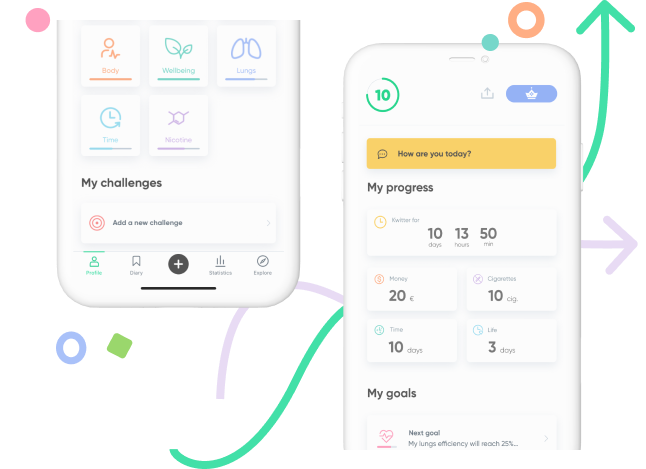October 15, 2020
Personal Development
How to develop and cultivate self-compassion?
By developing the art of self-compassion and benevolence, by showing kindness and comprehension.
The little (but sometimes powerful) voice we hear in our head plays an important role in influencing our behavior and emotions. When this voice is positive, our mood improves and our self-esteem soars. When it is negative, on the other hand, our emotions are volatile: we quickly go from sadness to anger, to stress. It's when this little voice is negative that we are more inclined to give in to cravings or temptations, more ready to simply throw in the towel.
Identifying negative thoughts
The way we see ourselves and the world is influenced by our personality (some people are naturally more optimistic than others) and by our life experiences. When "the little voice" speaks negatively about ourselves, we associate it with distorted thoughts or beliefs that have been acquired over time. Here are some examples of negative/distorted thoughts. Learning to identify them is the key to repelling them:
"Catastrophization": you believe that what has happened or will happen is so terrible that you can't bear it. Example: "It would be horrible if I smoked a cigarette."
Generalization: By overgeneralization, you identify an overall negative pattern based on a single incident. Example: I gave in to a cigarette. I will never be able to quit.
All or nothing: most of our actions are situated in a subtlety that must necessarily be understood and taken into account, everything is never all black or all white. Example: "Nobody supports me, nobody loves me" or "I smoked, so I failed."
Over-interpretation: interpreting events according to how you think things should be rather than simply focusing on what is, is not a good solution. Example: "I should feel better." or "I shouldn't feel like smoking now."
Personalization: you blame yourself disproportionately. Example: "I haven't stopped yet because I'm not strong enough."
"What if": when you constantly think about future possibilities/events and are never satisfied with any of the answers. Example: "What if the patch doesn't work?" or "What if I relapse and smoke again?!"
Emotional reasoning: when you let your feelings guide your interpretation of reality. Example: "I am stressed, I need to smoke."

Learn to have self-compassion
Our beliefs and worldview are influenced by our life experiences. Everyone experiences challenges, unfortunate events, and sometimes even trauma. It is easy to focus on these negative experiences or to become convinced that we are bad people, that we deserve bad things, that we are powerless to change the world around us. This is not true. The way we see the world is a choice. To get rid of this negativity and to learn to be more forgiving to yourself, when negative thought patterns appear, force yourself to start your sentences with:
I deserve...
I have the right to
I will do it...
I have the strength to...
Having self-compassion means acting in the same way towards oneself as towards someone else when going through a difficult period. Would we tell someone that they are not strong enough, not brave enough, that they will always fail? NO! Have self-compassion means showing the same kindness and comprehension.
Things will not always go as we wish, or as we had anticipated. We will encounter frustrations, losses, make mistakes, encounter obstacles, and sometimes reach our limits. We will not always live up to our ideals. Learning to have self-compassion softens these difficult moments and makes life more beautiful.




